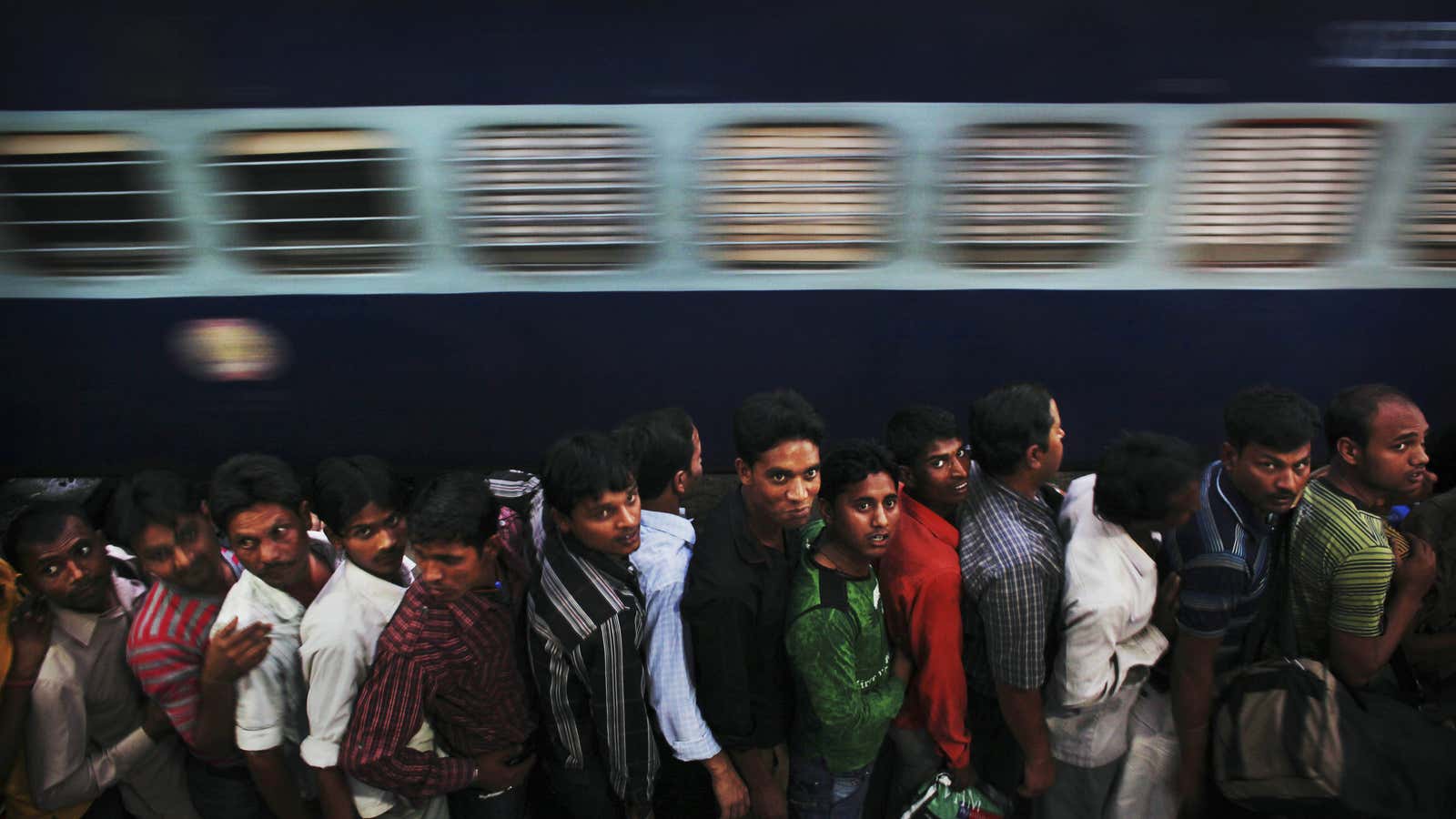For the first time in its 166-year history, Indian Railways is letting go of its monopoly on rail travel.
Beginning tomorrow (Oct. 05), commuters between Delhi and Lucknow will be able to travel in a “private” train that comes with swanky, aircraft-like frills. The Tejas Express, flagged off by Uttar Pradesh chief minister Yogi Adityanath today (Oct. 04), is run by the Indian Railway Catering and Tourism Corporation (IRCTC), an arm of the railways that recently made its stock market debut.
Thus far, all trains in the country have been operated by the state-owned Indian Railways, one of the world’s largest employers. Now, in what appears to be a bid to improve its profitability, it has allowed IRCTC to run the Tejas Express.
While the move may not be privatisation proper, it opens the door for a public-private partnership model on India’s rail network that may end up benefiting passengers.
Upgraded facilities
For travellers, IRCTC is offering a range of newer, more modern facilities.
These frills, though, will come at a premium.
While an executive class AC chair car ticket on a regular Shatabdi Express between Delhi and Lucknow costs upwards of Rs880, fares for the Tejas Express start at Rs1,125 for chair car and Rs2,310 for the executive chair car.
Travel time between the two trains is comparable. Both trains have dynamic fares and the actual cost of travel will differ according to the season and traffic. The Tejas Express will have only two stops between Delhi and Lucknow—Ghaziabad and Kanpur. The Shatabdi, though, has five stops.
Onboard the Tejas Express, the IRCTC will have its own staff, such as ticket checkers, and service crew, though the loco pilots and guards will belong to Indian Railways.
IRCTC will pay its parent company haulage charges and a lease, according to The Hindu newspaper. Monetising its existing railway tracks this way is also a first for the national transporter.
In turn, IRCTC will have the liberty to use advertisements inside and outside Tejas’s coaches
This is among the latest experiments within Indian Railways. Earlier this year, the transporter launched the Vande Bharat Express, the country’s fastest train, between Delhi and Varanasi, with similar upgraded facilities. Another Vande Bharat Express between Delhi and Katra was flagged off on Oct. 03.
A second Tejas Express is also slated to start operating between Mumbai and Ahmedabad in December.
